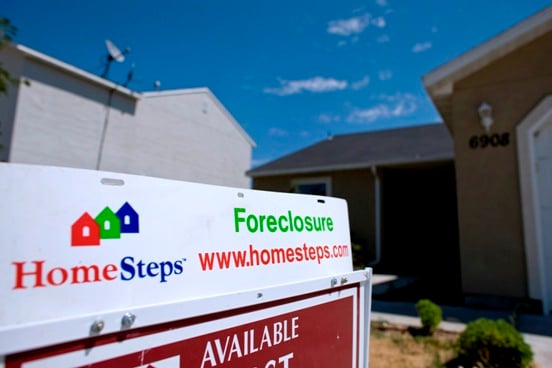Advisers say homeowners who have mortgages through private lenders will still find it hard to refinance properties and take advantage of low interest rates — even as the government moves to ease lending for federally guaranteed mortgages.
“Even people with good credit are still challenged to get the cheaper rates if they have any shadow of problems with their credit, and it doesn't have to be dramatic,” said financial adviser Mark Balasa, co-chief executive of Balasa Dinverno Foltz LLC, which manages about $1.85 billion in client assets.
President Barack Obama said Monday that more than 10 million homeowners have mortgages that are underwater — thanks mostly to home prices that have dropped 17% on average since 2007. Nevada homes have been the hardest-hit, with 60% of that state's properties in negative- equity situations as of June 2011, according to a CoreLogic study released last month.
Nevada served as the backdrop for Mr. Obama's announcement that the Federal Housing Finance Agency is easing refinancing standards for some loans to help those whose homes are underwater. The new rules apply only to loans guaranteed by Fannie Mae or Freddie Mac, and borrowers also must meet certain criteria, such as having no late mortgage payments in the past six months.
RELATED ITEM The best-performing housing markets
Housing and Urban Development Secretary Shaun Donovan estimated that borrowers who refinance into current rates of 4% from loans with 5% or 6% rates could save as much as $2,500 a year.
Getting approval could be difficult, however. Homeowners with solid credit ratings are finding that any instance of income instability or a slowdown in business growth — or even declining home values — can block them from getting approval to refinance.
Meanwhile, homeowners with properties that are underwater (or worth less than the amount due a lender) have an especially difficult time refinancing, advisers said. In many cases, financial advisers have clients with second homes that are underwater, and they are unable to refinance those mortgages to lower rates to ease their losses.
RELATED ITEM Who loses if the mortgage tax break for second homes is nixed?
The CoreLogic study found that negative equity is significantly limiting the ability of borrowers to benefit from the low-rate environment.
“High negative equity is holding back refinancing, and sales activity and is a major impediment to the housing market recovery,” said Mark Fleming, chief economist at CoreLogic.
Banks today aren't even necessarily finding anything wrong with the mortgage applicant but are still resistant to giving out home loans.
One of Mr. Balasa's clients who owns his primary residence in a Chicago suburb sought to buy a condominium within the Trump International Hotel & Tower in the city. His longtime lender said the rate would be 8% even though the client could show he had enough cash to buy the unit outright.
“The bank said it wasn't interested in expanding its portfolio,” Mr. Balasa said. Ultimately, the client was able to secure a mortgage with a 4.5% rate from a competitor.







